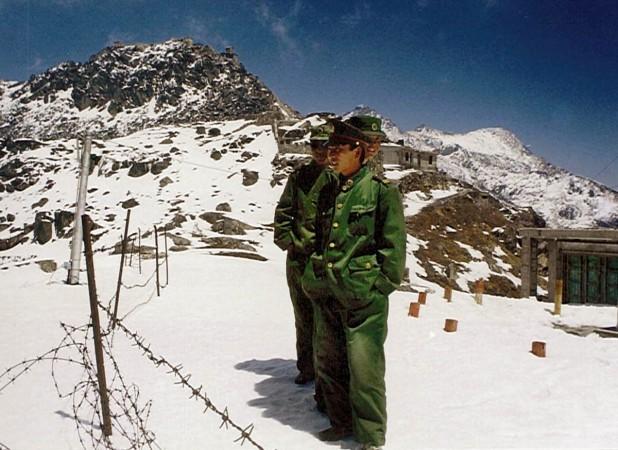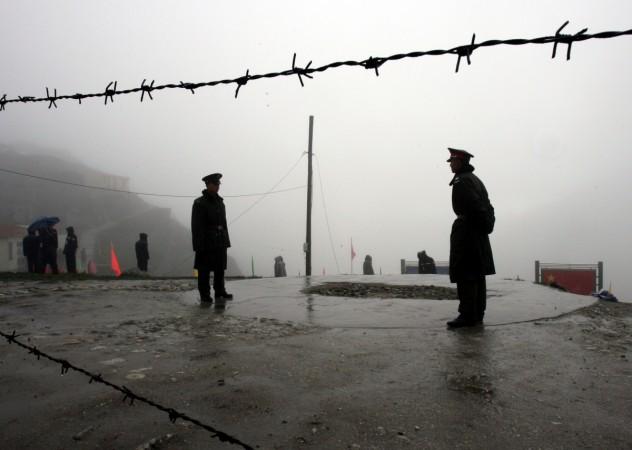
In a fresh verbal strike from China over the Sikkim stand-off, Beijing on Wednesday accused India of "trampling" on the Panchsheel principles and asked India to "correct its mistakes" by calling off its troops.
China also refuted the claims that the Chinese troops were building a road close to the Chicken's Neck in the Sikkim sector which could potentially endanger India's access to its northeastern states. Beijing said India was "misleading the public."
"I want to point that the relevant actions by the Indian side violated the purposes and principles of the UN Charter in defiance of the international law and international norms. As we all know in 1950s China, India and Myanmar proposed the five principles (Panchsheel) of co-existence," Chinese foreign ministry spokesperson Gen Shuang told reporters, according to PTI.
"However to the surprise of everyone, the Indian side trampled on the basic norms governing the international relations proposed by itself by illegally crossing into other country's territory," Gen added.
The Panchsheel principles, also known as the Five Principles of Peaceful Coexistence, are a series of propositions at the root of India-China relationship. The principles were first formally mentioned in an agreement treaty between India and China in 1954.

The spokesperson also said the Indian troops have crossed the delineated boundary into the Chinese side this time, and the nature of the incident is "very serious." He also added that China has lodged a protest with India on the issue.
"China and India have been in contact through the special representatives' mechanism to solve the boundary question but this incident, I believe, violates the spirit upheld by the Special Representatives mechanism and goes in contrast to the efforts made by the two countries. Indian border troops are still staying on the Chinese territory," he said.
Geng said China wants India to pull back its troops as a precondition to avoiding any deterioration of the situation.

"Troops should be pulled back as soon as possible to demonstrate the sincerity to improve bilateral ties so as create conditions for the normal development of bilateral relations. If the Indian side refuses to correct its mistakes in a timely fashion, how it proposes to win the trust of its neighbours and how it is supposed to play a bigger role in the international affairs," he said.
"We once again urge the Indian side to abide by the boundary convention and respect the Chinese sovereignty and immediately withdraw the border troops and properly deal with the incident in a timely fashion," Geng added.














